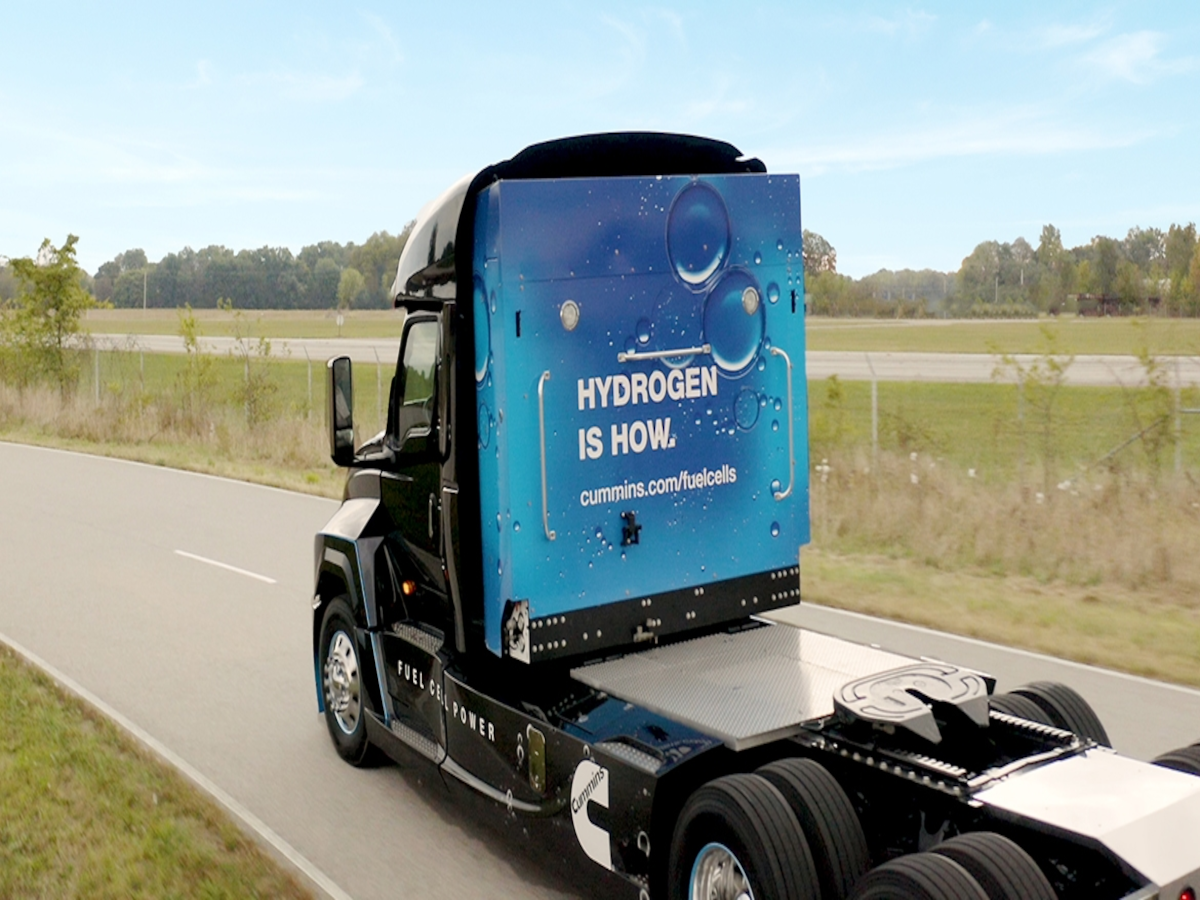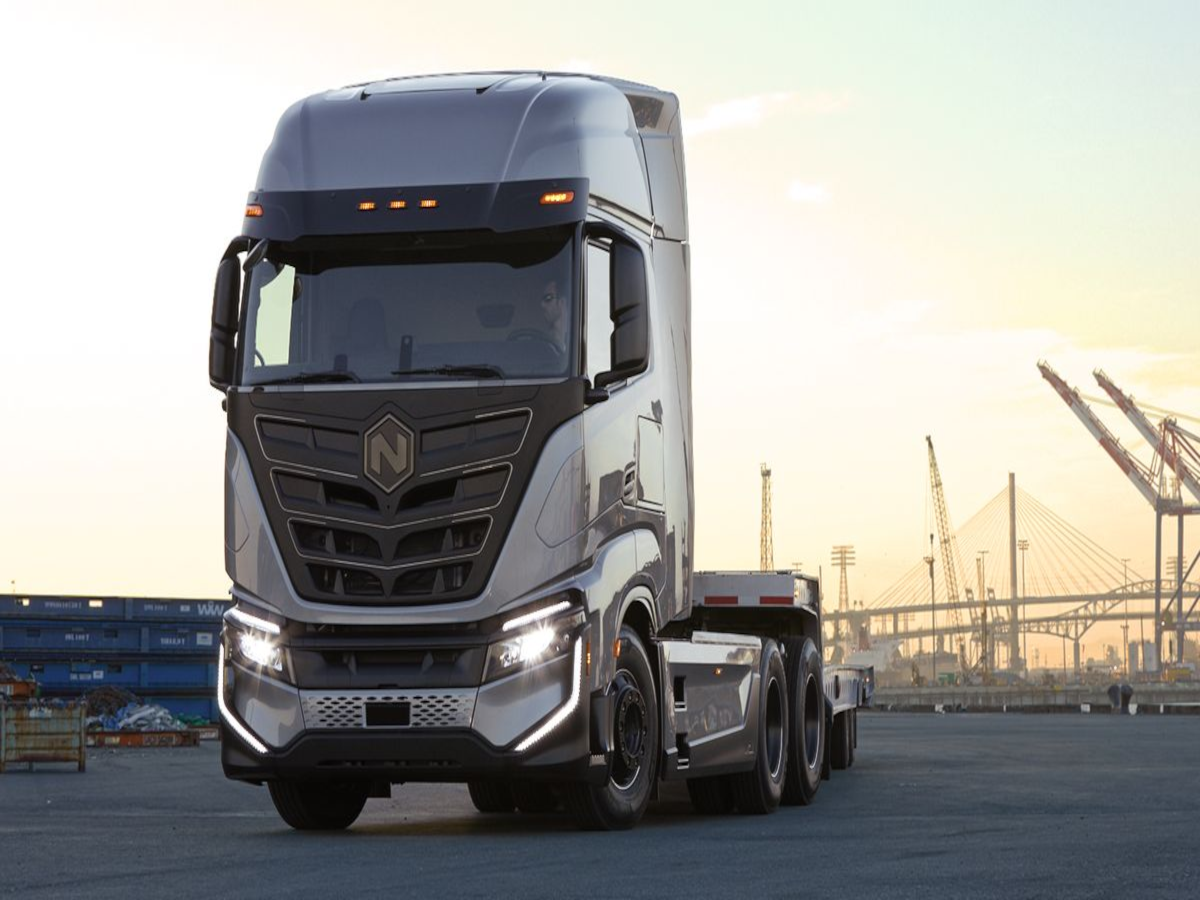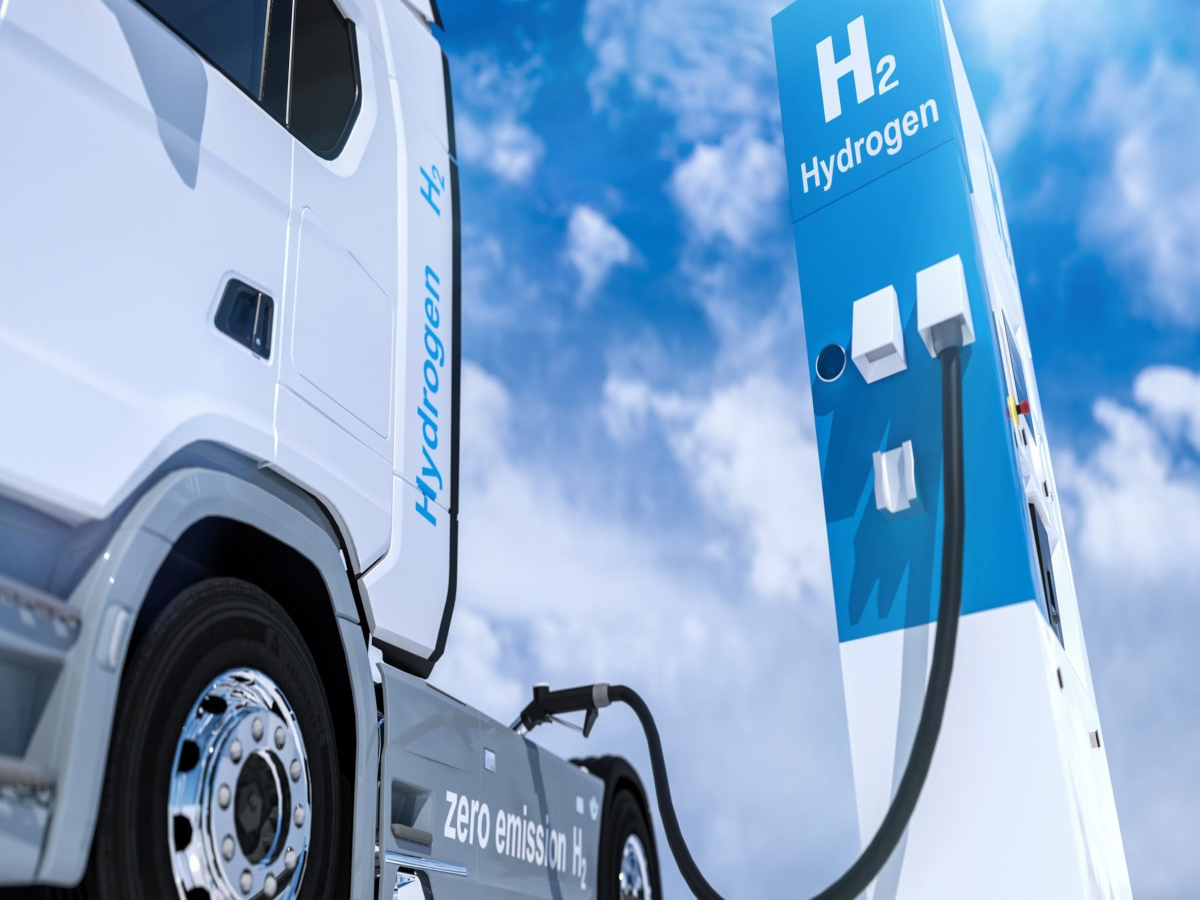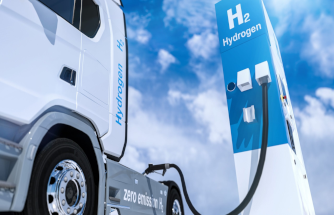Dec 6th 2024
The automotive industry has been making significant efforts to make vehicles more sustainable. While it may be easier for cars, it is more challenging for semi trucks, which need more power to withstand regional hauling. In this blog, we’ll discuss the difference between hydrogen fuel cell semi trucks and electric semi trucks to identify which will win the green race.
How Does a Hydrogen Fuel Cell Semi Truck Operate?
Semi trucks using hydrogen fuel produce power by triggering a chemical reaction. The battery unit is made of a fuel cell stack, which is paired with an energy storage system usually made of lithium-ion batteries. The hydrogen then produces electricity through an energy conversion process.
When used in vehicles, the hydrogen is kept in a hydrogen fuel cell battery, which is usually placed in high-pressure tanks. The hydrogen transfers into the fuel cell stack once the motor is turned on. It then reacts with airborne oxygen to produce electricity, heat, and water vapor.

As of this writing, numerous companies are now working on developing hydrogen-fueled cab trucks. In fact, the California Air Resources Board, in partnership with Toyota, is now modifying Kenworth T680 and Peterbilt 579 trucks to run on hydrogen fuel cell powertrains. While the project’s specifics have not been announced to the public, PACCAR is expected to run test units starting in 2024.
How Does an Electric Semi Truck Operate?
Semi trucks using electric batteries rely on rechargeable packs to power up their motors. Like any device using batteries, they use electrical energy. Most of the time, their battery packs are made of lithium-ion cells, which enable trucks to drive an acceptable distance on a single charge.
When charging the battery pack, the driver must connect the truck to an electric charging station. This transforms incoming AC power into DC that can be stored in the battery cells. The inverter then transforms the DC electricity from the battery pack into AC power, which powers the electric motor.

Since 2021, the American electric truck startup Nikola has been running two conventional cab trucks in Los Angeles and Long Beach with electric batteries. The company claims its units can run up to 350 miles with a 753 kWh battery.
What Is the Difference Between Hydrogen Fuel Cell Semi Trucks and Electric Semi Trucks?
The difference between hydrogen fuel cell semis and electric semis lies in how they produce and store alternative power.
Semi trucks using hydrogen engines produce power by triggering a chemical reaction between hydrogen and oxygen. This process occurs within the fuel cell stack, which converts the chemical energy into electricity. The high-pressure tanks are used to store the hydrogen fuel, which is then refilled throughout your trip.
On the other hand, conventional cab trucks using traditional electric engines store electricity in rechargeable battery packs that are used to power the vehicle’s electric motors. Like regular gadgets, electric trucks are plugged into a charging station.
What Are the Advantages of Driving Hydrogen Fuel Cell Semi Trucks?
Using hydrogen fuel cell batteries on semi trucks has numerous benefits: zero emissions, longer driving range, fast refueling, and more. To understand why the use of hydrogen is considered a viable replacement for traditional combustion engines, let’s go through these advantages individually:
Zero Emissions
Since their only source of power is water, trucks using hydrogen fuel batteries don’t emit hazardous gases. For this reason, they are a very sustainable and eco-friendly energy source. Furthermore, compared to traditional motor engines, hydrogen-powered engines are incredibly quiet, making them suitable for use in densely populated areas.
Longer Driving Range
Most of the time, hydrogen fuel cells achieve a working efficiency of up to 60%. This means the system successfully transforms a significant portion of the hydrogen fuel into useful electricity with minimal loss. Also, hydrogen fuel batteries are the ideal green option for regional hauling and all-day driving since they have a better driving range.
Fast Refueling
Hydrogen fuel batteries have faster refueling times than electric motors. Aside from this, it also requires less maintenance and has a longer lifespan because of the sustainability of hydrogen.
What Are the Disadvantages of Driving Hydrogen Fuel Cell Semi Trucks?
Since hydrogen fuel cell semis are still relatively new, they come with a handful of issues, such as cost, accessibility, and safety. Let’s go through them one by one:
Cost
For starters, the entire hydrogen fuel system can be really expensive, especially if installed in heavy-duty vehicles like semi trucks. Installation, repair, and maintenance services for hydrogen-powered are still not that common, so if you wish to explore this path, you’ll technically be paying hydro-power experts to maintain your semi truck.

Accessibility
Hydrogen fuel stations are still being developed, making accessibility an obvious issue. Locating hydrogen pumps can be really daunting for truck drivers, especially when driving through the countryside.
Safety
Most importantly, there are issues of safety. Hydrogen is extremely combustible and might be challenging to handle properly. Despite the fact that hydrogen fuel engines are made to be secure, they are still susceptible to leaks, which may lead to explosions.
What Are the Advantages of Driving Electric Semi Trucks?
Zero emissions, low operating costs, and good electric efficiency are some of the benefits that numerous people are now enjoying with electric vehicles. To see how they fair with semi trucks, let’s go through these advantages:
Zero Emissions
Truck drivers may reduce their reliance on fossil fuels by utilizing electricity to power transportation. Compared to regular engines, electric motors don’t emit hazardous emissions. Because of this, governments provide tax credits, rebates, or other financial benefits in exchange for purchasing EVs, including electric semi trucks.
Low Operating Costs
Compared to traditional vehicles, electric vehicles have lower operating costs since electricity is frequently less expensive than gasoline or diesel fuel. They also require less maintenance, which allows you to save money and effort.
Good Electric Efficiency
In contrast to vehicles powered by internal combustion engines, EVs use less energy. Internal combustion engines, which lose energy through heat and other processes, are less effective in converting energy into motion than electric motors. Aside from this, EVs use regenerative braking, which reduces power wastage.
What Are the Disadvantages of Driving Electric Semi Trucks?
The disadvantages of driving electric semis include longer charging times, battery degradation, and waste management challenges. Let’s delve into each of these issues.
Long Recharging Time
Electric vehicles take longer to recharge compared to refueling with fossil fuel or water. While there are now numerous electric charging stations in the USA thanks to Tesla’s efforts, it can still take several hours to fully recharge a battery pack, making it less convenient for some drivers.
Battery Degradation
Lithium-ion batteries degrade over time, decreasing range and performance. Extreme temperatures can accelerate corrosion, which may be a major problem for truck drivers as they are always subjected to harsh weather conditions.
Waste Management Challenges
Lastly, the process of battery disposal for electric vehicles could be more eco-friendly. Lithium-ion batteries are not currently recyclable in a cost-effective way, so they must be disposed of properly.
Hydrogen Fuel Cell Semi Trucks vs Electric Semi Trucks, Which Is More Eco-Friendly?
While the use of hydrogen fuel in vehicles remains in its early stages of development, there’s no denying that hydrogen engines are the most eco-friendly power option on the market today. Unlike lithium-ion batteries, hydrogen batteries don’t have disposal issues, which may be a problem in the long run.
For semi trucks, the long charging time of electric batteries is also a significant disadvantage, as drivers are expected to drive all day during regional hauling. The downtime of using electric motors can significantly affect the productivity and profitability of a semi truck, not to mention the driver’s overall riding comfort.
Despite all this, it’s worth noting that the proper use and maintenance of semi trucks can still make or break their sustainability. Regardless of whether you’re using a hydrogen or electric engine, if your semi truck’s HVAC and other operational units are not performing optimally, it would still lead to power wastage. For this reason, it’s essential to make necessary upgrades with high-quality aftermarket semi truck parts to ensure the sustainability of your unit.
In short, while you’re still waiting for a hydrogen or electric engine for semi trucks, it’s best to ensure that your ride is working at its best today.

